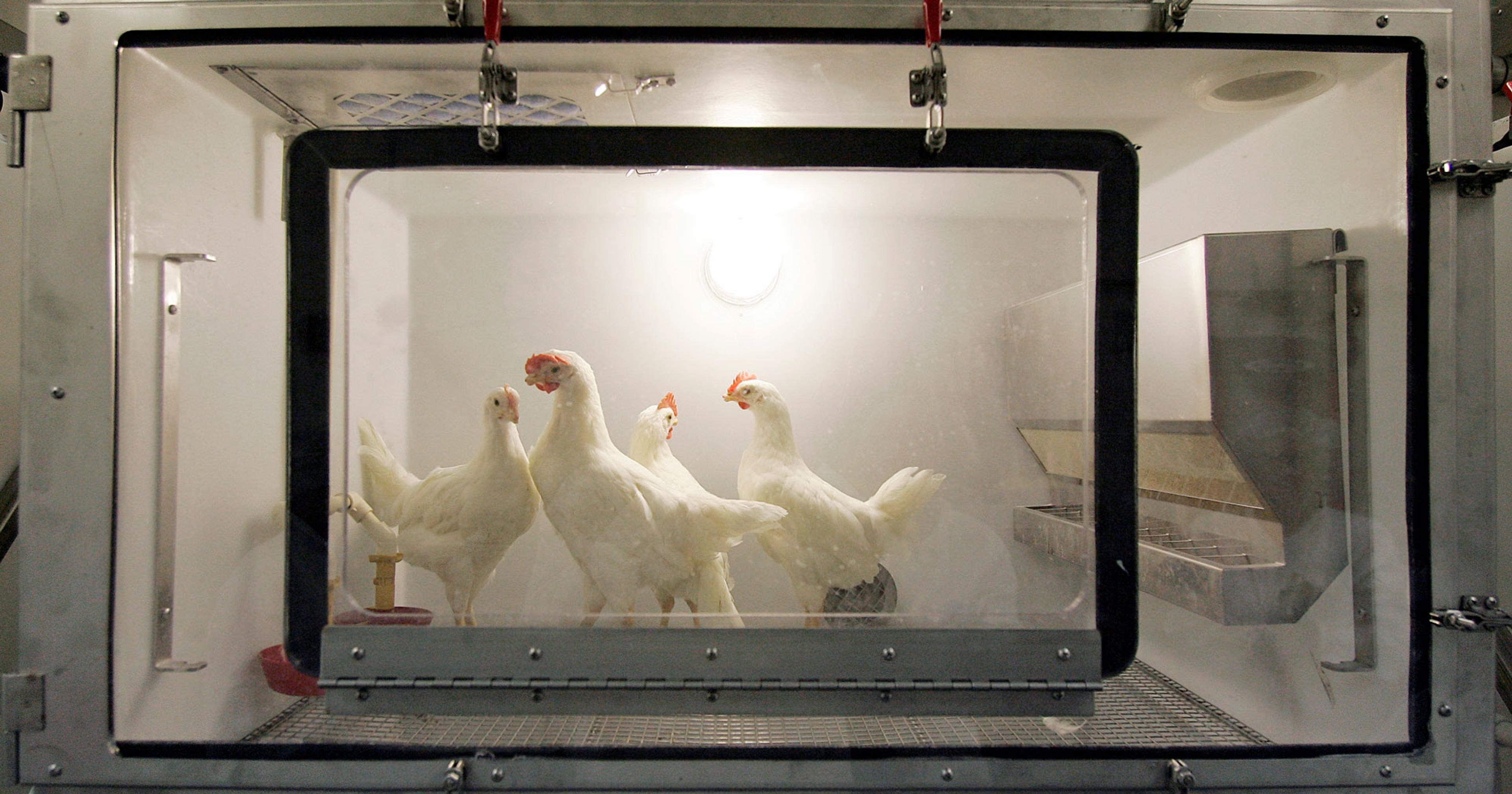Researchers say the popular herbicide glyphosate could be causing Celiac disease, colitis, and other gut issues.
When University of British Columbia professor of biochemistry and molecular biology Deanna Gibson and then-PhD candidate Jacqueline Barnett began researching glyphosate, they hoped their hypotheses would not be true.
“I hoped not to see anything because it would mean that when I banned my husband from spraying Roundup all the years that I was rearing my children, it would have been meaningless,” Gibson said. She’d long feared she would get exposed to the glyphosate in her garden, but it turns out most people are likely exposed through their food. “Because every time I gave them a piece of bread or the lentils that we eat, I unknowingly was causing them damage.”
Glyphosate, of course, is the active ingredient in Bayer-Monsanto’s infamous herbicide Roundup, a weedkiller that has changed the way farmers farm and gardeners garden. According to the Environmental Protection Agency (EPA), glyphosate “is important in the production of fruits, vegetables, nuts, and glyphosate-resistant field crops such as corn and soybeans.”
In 2015, Roundup became a more infamous name when the International Agency for Research on Cancer (IARC) declared glyphosate a “probable carcinogen” to humans. The IARC reviewed 1,000 studies on glyphosate, some of which looked at farmers exposed to the herbicide through their work.
The EPA has maintained that glyphosate is not dangerous to humans. But further research, like the work being done by Gibson and Barnett, is expanding on what glyphosate can do to the gut. Due to the way glyphosate inhibits bacterial pathways, Barnett’s latest research concludes that mice with grandparents exposed to glyphosate develop colitis. This connection has been a burgeoning area of interest in the past few years — authors of one 2013 paper concluded that glyphosate “is the most important causal factor in [the Celiac] epidemic.” Another paper, published in 2023, argued that glyphosate “significantly impacts gut microbiota composition.”
In her latest study, Barnett consulted with a registered dietician to calculate how much glyphosate residue is in our food. That number constituted the first dose she tested on mice. The other dose was set based on the EPA’s “acceptable daily intake” of glyphosate, which the agency claims can be consumed daily without any ill effects.
“Our average American diet dose that we calculated was about 0.01 milligrams per kilogram per day, whereas the EPA currently states that you can consume 1.75 milligrams per kilograms per day. We’re talking about a 175-time difference in doses,” Barnett said. “We found that in otherwise healthy mice, whose grandparents were exposed to glyphosate at these two doses that I mentioned, offspring in the F1 and F2 generation developed colitis. We saw it in that average American diet dose. We saw it in that EPA high level dose. And so that was shocking.”
While the EPA’s numbers may seem high, people are likely exposed to glyphosate in many different ways, the most common being through the fruits, vegetables, and grains we eat. According to the Environmental Working Group (EWG), high levels of glyphosate can be found in everything from hummus to oats. It is also found in the urine of 87 percent of children tested in the United States. In some heavily farmed states, glyphosate can even be found in tap water. EWG claims that the EPA’s high limits for human consumption ultimately allow for not enough regulation, and too much glyphosate residue left in our foods.
Authors of one 2013 paper concluded that glyphosate “is the most important causal factor in [the Celiac] epidemic.”
Barnett also looked at the serum levels of different hormones and different metabolic components in the mice and noticed that these animals had a dramatic decrease in GLP-1, which stimulates insulin secretion. GLP-1 is what Ozempic, the diabetes drug now viral for its use as a weight-loss tool, activates in the body. Without it, the body cannot use sugars as fuel. In her study, exposure of generations of mice exposed to glyphosate subsequently have “very low levels of GLP-1.”
Still, not everyone is convinced that glyphosate is bad for the gut, or really, even, bad at all. In 2023, the EU Commission renewed the approval of glyphosate for 10 years, while Bayer consistently defends the product’s safety in multiple lawsuits. And some argue that the chemical’s agricultural benefits outweigh its potential harms.
“That’s just propaganda,” said Bill Freese, science director of the nonprofit advocacy group Center for Food Safety. “There’s so much propaganda out there on glyphosate.”
Freese explained that other strategies, like crop rotation, can significantly reduce the need for herbicides. Additionally, over 35 different species of weeds have developed resistance to glyphosate, so its widespread efficacy is becoming less of a reality.
In 2020, the Center for Food Safety sued the EPA over their latest approval of glyphosate, claiming that the EPA “did not adequately consider whether glyphosate causes cancer.” In 2022, the courts agreed, striking down the EPA’s human health assessment of glyphosate. Now, the group is suing the EPA again, claiming that glyphosate’s registration is illegal without a thorough safety standard.
Safety is the focus of Barnett and Gibson’s research, and, today, gut health is connected more and more with brain health. Research from Johns Hopkins, Harvard, and the Cleveland Clinic all describe how the gut can influence certain conditions like depression and anxiety. In Barnett’s research, the mice who were descendants of glyphosate-exposed grandparents did not have much interest in exploring their surroundings. Scientifically, the mice also had reductions in kynurenine — a central metabolite which regulates immune response — which helps the body and brain form new memories.
“I think it’s fair to say that there’s a scientific consensus that glyphosate is a carcinogen in particular.”
“I don’t know if there is any pesticide that’s been so heavily marketed as glyphosate as being safe, as being biodegradable, and as being safer than table salt,” Freese said. “It’s just remarkable the degree of deception in Monsanto’s ads for glyphosate.”
It is difficult for a true “consensus” to be reached on causation when bodies are exposed to something over time. This was clear with DDT and with tobacco. As Freese noted, sometimes regulators reach different conclusions than scientists.
“I think it’s fair to say that there’s a [scientific] consensus that glyphosate is a carcinogen in particular,” Freese said, citing a paper signed by almost 100 scientists supporting this claim. “Among regulators, there’s kind of a different view that prevails. I think it’s explained by the fact that glyphosate is a really popular herbicide, and the pesticide companies and the big industrial farming groups have fought back really hard, and they influence the regulators.”
Though glyphosate was initially introduced to the masses in the 1970s, in 1996 Monsanto began selling genetically modified “Roundup Ready” crops that could withstand glyphosate. This “revolution” has resulted in glyphosate being the most commonly used herbicide of all time. Today, almost all soybeans grown in the United States are genetically modified.
Research being done on the connection between the glyphosate and the gut is still preliminary, and in a moment when microplastics, forever chemicals, and alcohol are also being investigated for messing with our guts, it is difficult to fully pin down one culprit. But Barnett believes it is already time for something to change.
“Ultimately, agricultural workers are going to continue to use it until we find something better,“ Barnett said. ”We need something better.”










